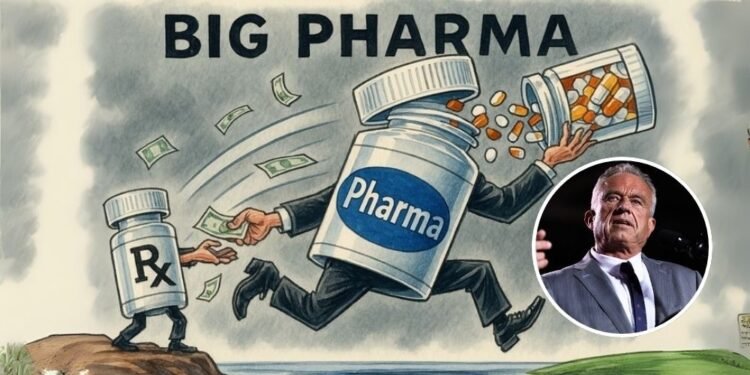Health and Human Services Secretary Robert F. Kennedy Jr. sent shockwaves through the medical establishment by introducing stringent rules that could delay updated COVID-19 vaccines for fall, demanding placebo-controlled trials for all new shots.
This move, requiring Pfizer and Moderna to treat their updated vaccines as “new” products, challenges the unchecked influence of Big Pharma and reflects a growing global demand for transparency in public health.
Far from the “anti-vax” caricature painted by critics, RFK Jr.’s reforms aim to dismantle cozy ties between government agencies and pharmaceutical giants, prioritizing bodily autonomy and informed consent in a climate of widespread skepticism.
For decades, the FDA and CDC have faced accusations of conflicts of interest, with revolving doors between regulators and pharma executives raising eyebrows. RFK Jr.’s push for rigorous testing echoes concerns shared by millions, where distrust in medical mandates has surged post-pandemic. His critics argue the rules could limit vaccine access for vulnerable groups, but supporters see a necessary reckoning with government overreach.
The CDC’s recent decision to halt routine COVID vaccine recommendations for healthy children and pregnant women, announced by RFK Jr., underscores this shift, prioritizing individual choice over blanket mandates.
Global sentiment backs RFK Jr.’s crusade, with posts praising his demand for “real safety tests” to rebuild trust eroded by Big Pharma’s profit-driven agenda. The “Make America Healthy Again” report, co-released with President Trump, highlights environmental toxins and ultra processed foods as health threats, further aligning with public calls for accountability.
While the FDA warns of delays, RFK Jr.’s insistence on evidence-based approvals counters the rushed rollouts of the past, which fueled skepticism worldwide.
This isn’t about denying science—it’s about demanding it. RFK Jr.’s reforms confront a system where pharma giants fund studies and influence policy, sidelining informed consent. His rules signal a pivotal moment: a chance to restore trust through transparency, not coercion, in the face of entrenched power.












